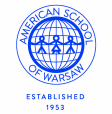ASW
|
 WHAT IS THE REGGIO EMILIA APPROACH? The Reggio Emilia Approach is an innovative and inspiring approach to early childhood education which values the child as strong, capable and resilient; rich with wonder and knowledge. Every child brings with them deep curiosity and potential and this innate curiosity drives their interest to understand their world and their place within it. Background: The Reggio Emilia Approach originated in the town (and surrounding areas) of Reggio Emilia in Italy out of a movement towards progressive and cooperative early childhood education. It is unique to Reggio Emilia. It is not a method. There are no international training colleges to train to be a Reggio Emilia teacher. Outside of the town of Reggio Emilia, all schools and preschools (and home schools) are Reggio-inspired, using an adaptation of the approach specific to the needs of their community. This is important, as each student, teacher, parent, community, and town are different. No two Reggio-inspired communities should look the same, as the needs and interests of the children within each community will be different. Typically the Reggio Approach is applied to preschools and early childhood settings but I think, with an understanding of the general principles, this inspiring child-led approach can be adapted to the home as well. Fundamental Principles: I have included links to posts which highlight these principles in more detail. If you are interested in implementing a Reggio-inspired approach in your own homes, check out our 30 Days to Transform Your Play series. Children are capable of constructing their own learningThey are driven by their interests to understand and know more. Children form an understanding of themselves and their place in the world through their interactions with others. There is a strong focus on social collaboration, working in groups, where each child is an equal participant, having their thoughts and questions valued. The adult is not the giver of knowledge. Children search out the knowledge through their own investigations. Children Are Communicators: Communication is a process, a way of discovering things, asking questions, using language as play. Playing with sounds and rhythm and rhyme; delighting in the process of communicating. Children are encouraged to use language to investigate and explore, to reflect on their experiences. They are listened to with respect, believing that their questions and observations are an opportunity to learn and search together. It is a process; a continual process. A collaborative process. Rather than the child asking a question and the adult offering the answers, the search is undertaken together. The Environment is the Third Teacher: The environment is recognised for its potential to inspire children. An environment filled with natural light, order and beauty. Open spaces free from clutter, where every material is considered for its purpose, every corner is ever-evolving to encourage children to delve deeper and deeper into their interests. The space encourages collaboration, communication and exploration. The space respects children as capable by providing them with authentic materials & tools. The space is cared for by the children and the adults. The Adult is a Mentor and Guide: Our role as adults is to observe (our) children, listen to their questions and their stories, find what interests them and then provide them with opportunities to explore these interests further. The Reggio Emilia Approach takes a child-led project approach. The projects aren’t planned in advanced, they emerge based on the child’s interests. An Emphasis on Documenting Children's Thoughts: You’ll notice in Reggio and Reggio-inspired settings that there is an emphasis on carefully displaying and documenting children’s thoughts and progression of thinking; making their thoughts visible in many different ways: photographs, transcripts of children’s thoughts and explanations, visual representations (drawings, sculptures etc.), all designed to show the child’s learning process. The Hundred Languages of Children is probably the most well-known aspect of the Reggio Emilia Approach. The belief that children use many many different ways to show their understanding and express their thoughts and creativity. A hundred different ways of thinking, of discovering, of learning. Through drawing and sculpting, through dance and movement, through painting and pretend play, through modelling and music, and that each one of these Hundred Languages must be valued and nurtured. These languages, or ways of learning, are all a part of the child. Learning and play are not separated. The Reggio Emilia Approach emphasises hands-on discovery learning that allows the child to use all their senses and all their languages to learn. If interested in learning more, please take a look at the author's blog by copying this link: http://www.aneverydaystory.com/beginners-guide-to-reggio-emilia/main-principles/
0 Comments
ES CounselingASW’s Elementary School Counseling Center is staffed by two full time counselors.
Our comprehensive counseling program includes: Orientation It is our goal to ensure that each new student has a smooth transition to ASW. Welcoming new students and their parents, providing them with an orientation of our Elementary School, and supporting each student’s adjustment to his/her new environment comprise the foundation that we build upon to make certain that each student succeeds socially and academically. Classroom guidance lessons Our comprehensive guidance program focuses on activities and lessons that are consistent with identified student needs. Our curriculum is based upon the ASCA (American School Counselor Association) model and includes lessons in the domains of academic, social, and career awareness. The counselors are in the classrooms on a regular basis and are available for supplemental lessons. Small group counseling A variety of small group counseling activities occur throughout the year which focus on issues that include academic and social development. These may be include New Student Group, Friendship Group, and Goodbye Group among others. Individual counseling Our counselors provide an environment that is conducive to students communicating freely and openly with them. Within this environment we strive to know each student as an individual providing them with the tools to overcome academic challenges, maintain a positive self-image, and utilize problem solving strategies. Teacher and parent consultation Collaborating with teachers and parents in a unified approach to find the most effective methods to help each child reach his/her academic potential is the cornerstone of our program. Always operating with the best interest of the student in mind, we work together to help each child achieve academic and social success. Parent presentations and workshops Parent presentations and workshops are given on a wide array of educational issues designed to help parents become familiar with special topics of interest, and our programs and services, all with the aim of better serving each child and strengthening the bond between home and school. Books ASW has a large number of books available to parents and students that address topics such as parenting, school and social difficulties, and growing up. Books are available in the ES Counseling office. |


 RSS Feed
RSS Feed
